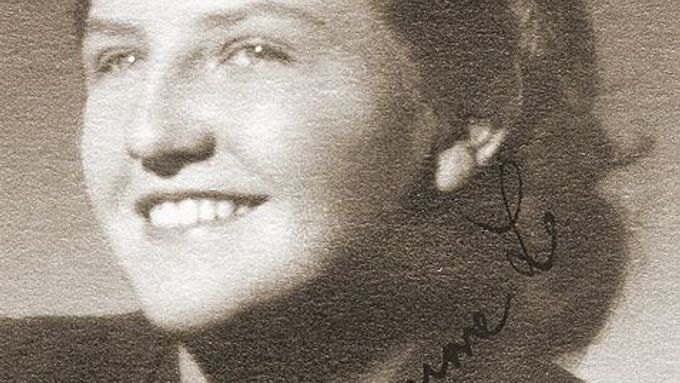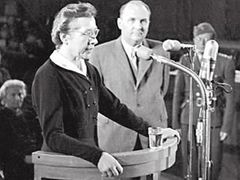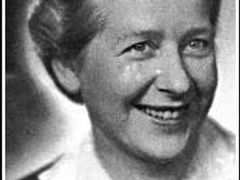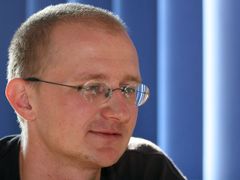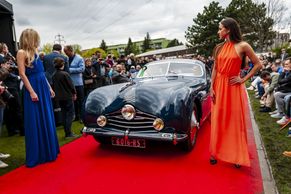Prague - Fifty-seven years ago the then communist prosecutor Ludmila Brožová-Polednová was among those who helped send a prominent democratic politician Milada Horáková to the gallows.
Horáková, a lawyer by profession herself and a survivor of a German concentration camp, neither left the country nor stopped being politically active when communists took power in February 1948, thus becoming a nuisance for them, which they made sure to get rid of.
She was arrested on trumped-up charges of conspiracy and treason, subjected to a scripted show trial and executed in 1950 at the age of 49. She was fully rehabilitated only after the communist regime was toppled in 1990.
The tables have turned
In a rare instance of the past catching up with the proponents of the early Stalinist stage of the former regime, the tables have turned this week on the 86-year old pensioner Brožová-Polednová.
Eighteen years after the fall of communism she has been tried this week by the Prague City Court for her role in the show trial of Horáková and her three-co defendants.
She was only 29 years old at the time of the infamous trial that came to represent some of the worst excesses of the communist regime in Czechoslovakia.
Brožová-Polednová did not attend the court proceedings, as expected. She sent a representative who requested the trial take place in her absence as the former prosecutor is allegedly almost blind and deaf and suffers from nausea.
If the accused did not submit the request, the trial would almost certainly not have taken place. Trials of such grave criminal cases where the maximum penalty is more than 5 years require the presence of the defendant.
In the past a number of similar trials did not take place precisely for this reason. The accused, often very old, simply do not appear in court on health grounds.
For example, Alois Grebeníček, who is known to have tortured prisoners in communist jails, died before he could be brought to justice, managing to escape by arguing he was too ill to come to court.
Asking for the minimum penalty
Tuesday, when the trial of Brožová-Polednová began, saw the courtroom packed with journalists and former political prisoners.
The former prosecutor has been charged with complicity in a murder. If found guilty, she could theoretically face up to 15 years in prison.
The state prosecutor, however, asked for the minimum penalty after the closing speeches on Friday, with regards to the defendant´s age and health, which could bring it down to some five years in jail.
The defence lawyer, for his part, asked for the acquittal of his client who he said did not feel guilty of the alleged crime, pointing out that prosecution did not bring any solid evidence against her and arguing she was only in her first year at law faculty when the trial took place in 1950.
"The defendant was there to learn from the process. To assume that she was somehow in a position to influence its outcome is naive," said Vladimír Kovář, Brožová-Polednová´s advocate.
The verdict will be known on November 1st.
Moral message
"If they convict prosecutor Brožová, meaning if she is found guilty, it will have a moral message. No matter whether she goes to prison or not, as she is rather old. The moral message would be sent mainly to former political prisoners, and what more, the guilty verdict would condemn the brutality of the communist regime of the 40s and 50s," said historian Tomáš Bursík in an Aktuálně.cz online interview.
Brožová-Polednová is the only prosecutor responsible for the trial of Horáková to be brought to justice so far. In March this year she refused to be interrogated by the police, excusing herself for health reasons.
"My view is that Ms. Brožová cannot say much to defend herself. I suspect she knew what her role was in the Soviet style show trial, and she was very good at that role. Only a few weeks before the Horáková trial she was a prosecutor in another case, where catholic orders´ superiors were tried," Bursík added.
Among those awaiting the verdict most anxiously is Milada Horáková´s daughter Jana Kánská who came to Prague just for the occasion. She stayed away from the courtroom, though, to prevent the possibility of meeting the ex-prosecutor.
"You have to understand this, they murdered her mother. And the court heard how brutally it was done," said Jitka Titzlová from the Milada Horáková Club who met with Ms. Kánská several times before the trial.

